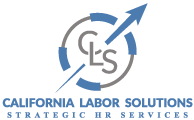Employers throughout California continuously realize the importance of conducting prompt, thorough, unbiased, and impartial workplace investigations when employee complaints related to discrimination, harassment, or retaliation arise. When one is received, employers and their legal counsel rely on impartial and unbiased workplace investigations to guarantee a work environment free from hostility to all employees. Furthermore, engaging an impartial third-party investigator avoids real or perceived bias and limits legal liability in litigation cases.
What does impartiality during a workplace investigation mean?  When conducting workplace investigations, impartiality entails an investigator’s ability to separate oneself from, and not have any personal or professional interest in the investigation’s findings.
When conducting workplace investigations, impartiality entails an investigator’s ability to separate oneself from, and not have any personal or professional interest in the investigation’s findings.
Actual and perceived impartiality means that it does not matter to the investigator whether the alleged conduct occurred; an impartial workplace investigator gathers and analyzes relevant evidence and reaches well-reasoned factual findings without being influenced by external sources.
Although sometimes employee complaint investigations can be conducted internally or by the employer’s legal counsel, both options have significant risks; with evolving laws and best practices, it is imperative that the person who conducts the workplace investigation remains impartial during the investigative process.
Three reasons why impartiality is relevant during workplace investigations:
 The Maricopa County Bar Association provides the following relevant reasons regarding the relevance of impartiality during and after a workplace investigation.
The Maricopa County Bar Association provides the following relevant reasons regarding the relevance of impartiality during and after a workplace investigation.
1. Improve the work environment:
Impartial workplace investigations resolve conflict and improve work environment. Complainants seek a comfortable work environment and to be heard, and respondents/accused want to be treated fairly and to be heard. Furthermore, both parties may worry about their livelihoods and reputation.
Nevertheless, all parties involved in a workplace investigation, including the employer, want to rest assured that the matter is being handled with the outmost professionalism; errors during the investigative process can create adverse effects, impacting the overall employee morale and confidence in the employer. A third-party investigator who is perceived as impartial can help navigate these complex situations.
Additionally, witnesses are more likely to speak openly with someone they perceive as unbiased, impartial, and objective, which leads to more accurate information, which produces factual findings that will allow employers and their counsel to make informed decisions.
2. Reduce legal liability risks:
Employers need to have a policy and procedure for addressing employee complaints, including the process for conducting impartial workplace investigations. This approach may limit liability in ensuing litigation.
The Equal Employment Opportunity Commission (“EEOC”) requires employers to conduct investigations after employee allegations related to discrimination, harassment, or retaliation. Therefore, conducting a prompt, impartial, and thorough investigation is essential for an employer’s defense in harassment cases involving co-workers, non-employees, and supervisors.
3. Avoid actual or perceived conflicts of interest:
The investigator’s impartiality must be maintained in fact and perceived at all times. Therefore, engaging an impartial investigator prevents potential conflicts of interest that could emerge from the investigator’s various roles and relationships. For instance, an impartial investigator must not also act as the employer’s legal counsel as well; an employer’s legal counsel risk encountering conflict of interests while separating their responsibilities as advisors and litigators.
Additionally, in case the investigated issues lead to litigation, the legal counsel could become a necessary witness. Even if another member of the legal counsel’s law firm conducts the investigation, it is problematic for them to put their partner or associate on the witness stand to assert whether an impartial investigation was conducted.
In addition, impartial investigative services and advocacy are separate functions. A legal counsel’s aim is to be a zealous advocate and obtain the best results for their client. An investigator’s duty is to be impartial and unbiased, not influenced by how the findings could potentially impact any involved party.
A lawyer acting as an advocate and investigator blurs these lines and may compromise the investigation’s integrity, leading to negative outcomes for the client. An opposing counsel will likely challenge the investigation as contrived to benefit the employer.
Why choose California Labor Solutions?
California Labor Solutions (CLS) is one of the only HR firms that is licensed* to conduct workplace investigations in California. We serve private businesses and public sector organizations in California. We have conducted hundreds of neutral, objective, and unbiased workplace investigations for employee complaints relating to allegations of discrimination, harassment, retaliation, and various types of employee misconduct with the utmost quality, detail, and efficiency.

